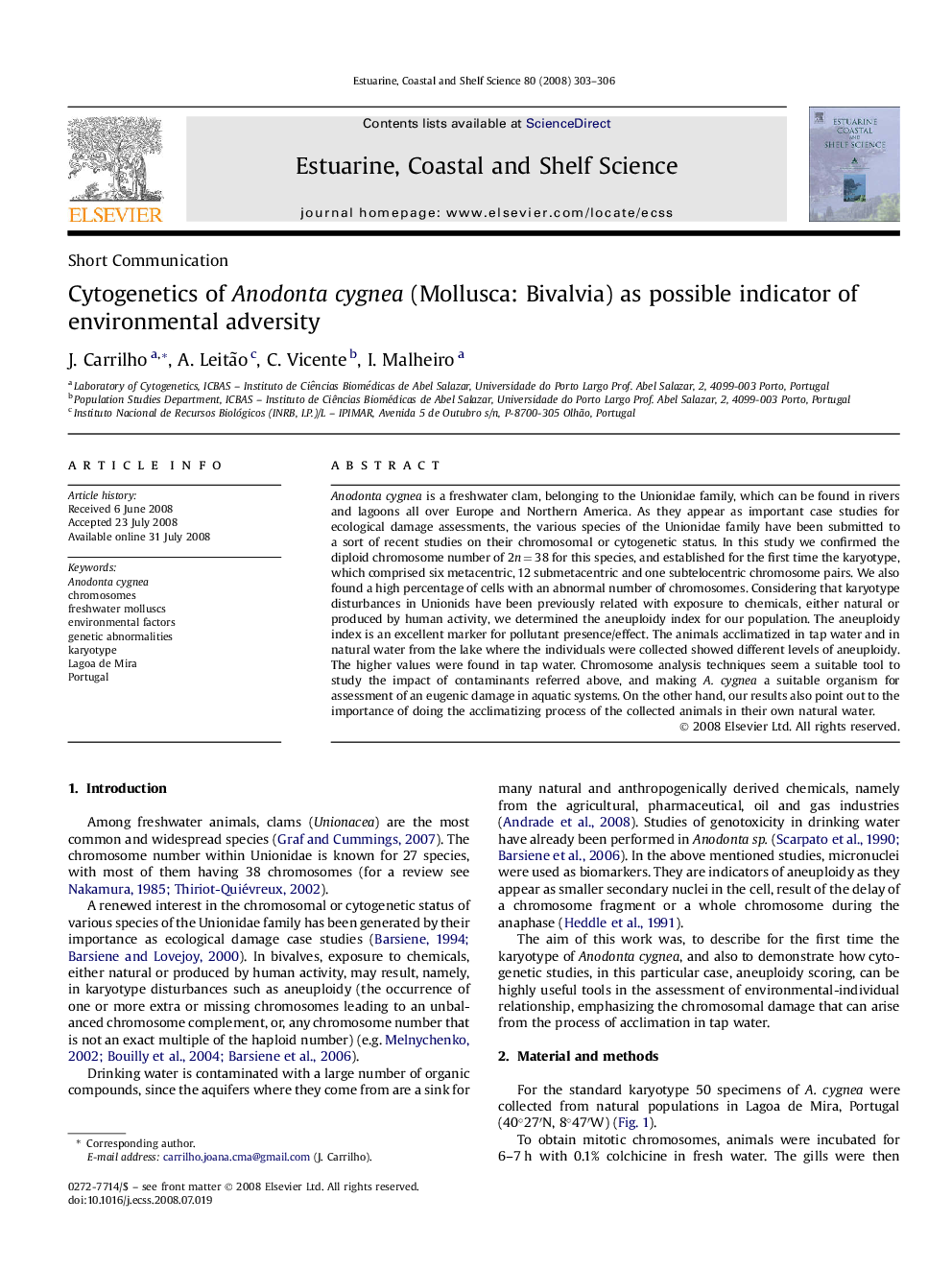| Article ID | Journal | Published Year | Pages | File Type |
|---|---|---|---|---|
| 4541691 | Estuarine, Coastal and Shelf Science | 2008 | 4 Pages |
Anodonta cygnea is a freshwater clam, belonging to the Unionidae family, which can be found in rivers and lagoons all over Europe and Northern America. As they appear as important case studies for ecological damage assessments, the various species of the Unionidae family have been submitted to a sort of recent studies on their chromosomal or cytogenetic status. In this study we confirmed the diploid chromosome number of 2n = 38 for this species, and established for the first time the karyotype, which comprised six metacentric, 12 submetacentric and one subtelocentric chromosome pairs. We also found a high percentage of cells with an abnormal number of chromosomes. Considering that karyotype disturbances in Unionids have been previously related with exposure to chemicals, either natural or produced by human activity, we determined the aneuploidy index for our population. The aneuploidy index is an excellent marker for pollutant presence/effect. The animals acclimatized in tap water and in natural water from the lake where the individuals were collected showed different levels of aneuploidy. The higher values were found in tap water. Chromosome analysis techniques seem a suitable tool to study the impact of contaminants referred above, and making A. cygnea a suitable organism for assessment of an eugenic damage in aquatic systems. On the other hand, our results also point out to the importance of doing the acclimatizing process of the collected animals in their own natural water.
